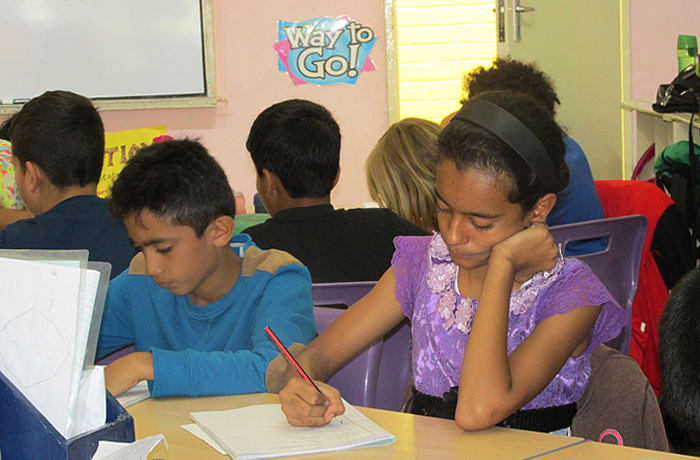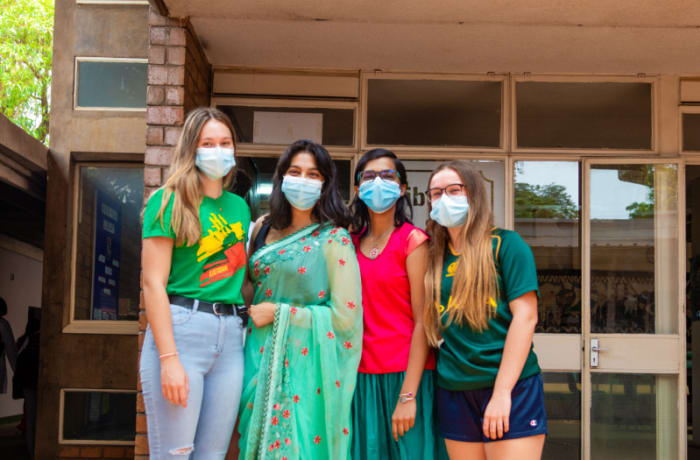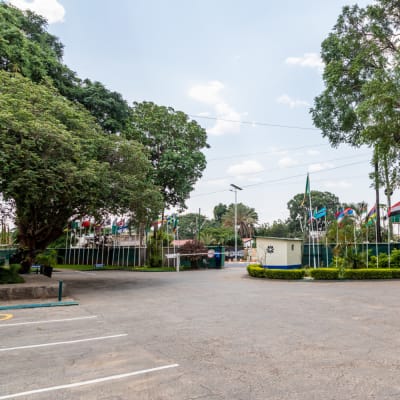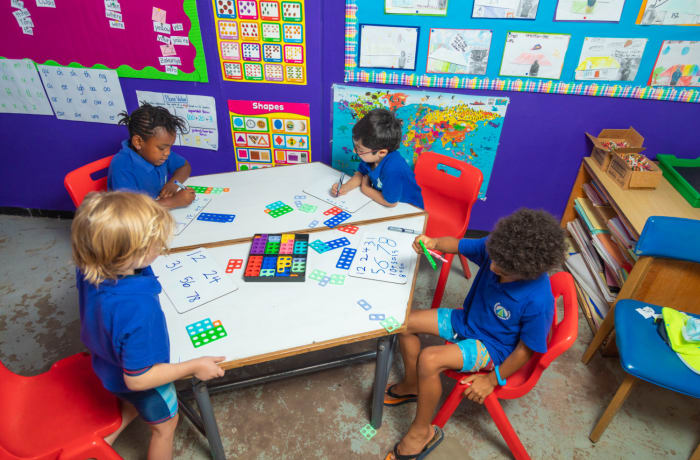
International School of Lusaka
Founded in 1963, the well-established International School of Lusaka is one of the oldest international schools on the African continent, and is currently the third largest school in the Association of International Schools in Africa. ISL is accredited by the Council of International Schools (CIS) and the New England Association of Schools and Colleges (NEASC). ISL is also a member of the Association of International Schools in Africa (AISA) as well as the Independent Schools Association of Zambia (ISAZ).
Contact info
+260211252291, +260211250391, +260964638406
PO Box 50121, Ridgeway, Lusaka
Message business
Enquiries, questions, quotation requests etc
Enquire via Email
Enquire via WhatsApp
IBDP results are out - Congratulations to the ISL Class of 2025!
News
about 1 month ago
Highlighting Alumni Success!
News
4 months ago
Early learning
The Early Years Department at the International School of Lusaka offers education to children aged two to seven years, with Nursery classes, Pre-school, Reception, Year One and Year Two classes. Classrooms are spacious and well-resourced, and playgrounds are extensive. The campus is located in a clean and safe environment.
Gives pre-school children a hands-on learning experience
Campus is located in a clean and secure environment
Each class is supported by a teacher and teacher aides
Products and Packages
1-3 of 7 results
2

International School of Lusaka
Pre-school
$1,148
Buy on Shopbwana
The processes of learning and teaching are designed to support students’ emergent and individual pathways of development in Early Years. The central features are:

International School of Lusaka
Pre-school
$1,148
Buy on Shopbwana
Pre-School - Tuition Fees
School Fees
The philosophy of the Pre-School programme is to help children develop their self-awareness and to become confident and independent. Play is an important aspect of Pre-School and we aim to provide an attractive environment that will stimulate learning. Children are given the opportunity to investigate and experiment at their own pace and to foster their own interests. School is seen as an extension of the home and it makes use of the cultural diversity present in the classroom as a basis for recognizing the value of each and every culture represented.

International School of Lusaka
Pre-school
$1,826
Buy on Shopbwana
The philosophy of the Pre-School programme is to help children develop their self-awareness and to become confident and independent. Play is an important aspect of Pre-School and we aim to provide an attractive environment that will stimulate learning. Children are given the opportunity to investigate and experiment at their own pace and to foster their own interests. School is seen as an extension of the home and it makes use of the cultural diversity present in the classroom as a basis for recognizing the value of each and every culture represented.
Primary school
The primary school curriculum at the International School of Lusaka follows an English language programme. The curriculum is designed to nurture students to become inquirers, thinkers, communicators and risk-takers. ISL is an authorised Primary Years Programme school under the International Baccalaureate Organisation.
A non-denominational, co-educational, independent day school
Accommodates the demands of most national and local curricula
Excellent learning support department for specific educational needs




+20
Products and Packages
1-3 of 3 results
2

International School of Lusaka
Primary school
$2,516
Buy on Shopbwana
There are two classes in Year 5 Please see below for our expectations for the year ahead and information about our curriculum.

International School of Lusaka
Primary schools
$3,139
Buy on Shopbwana
Middle School - Tuition Fees
School Fees
In general, all Middle School students are required to take English, Social Studies, Mathematics, Science, French or Spanish, Physical Education, Information and Communication Technology, Art, Drama and Music. In addition to a comprehensive academic programme, the Middle School also offers student support services and pastoral care.

International School of Lusaka
Primary schools
Extra-curricular activities (ECA) allow opportunities for our students to learn new skills and broaden their experiences, while also providing them with platforms to socialize and make new friends.
Secondary school
Students embark on their Secondary school experience in the Middle School, where they are immersed in a challenging and creative programme designed to develop the necessary skills and understanding needed to meet the demands of High School. In High School, students will have the opportunity to study two of the most rigorous and most well-known curricula in the world: the IGCSE and IB Diploma programmes. Both of these internationally recognized qualifications provide the educational foundation needed to gain entrance to the best universities in the world.
Comprehensive curriculum that follows IMYC, IGCSE and IB Diploma
Extensive sports, arts and after-school programmes
Enriching community and service programmes




+10
Products and Packages
1-2 of 2 results
1

International School of Lusaka
Secondary school
$3,362
Buy on Shopbwana
Secondary School - Tuition Fees
School Fees
The ISL High School programme is a 4-year university preparatory curriculum that aims to develop the habits of mind necessary for creative and critical thinking, collaborative and independent coursework and effective communication. Students consolidate their research and writing skills and develop their ability to apply theoretical concepts to real-world issues.

International School of Lusaka
Secondary schools
Extra-curricular activities (ECA) allow opportunities for our students to learn new skills and broaden their experiences, while also providing them with platforms to socialize and make new friends.
Contact information
+260211252291, +260211250391, +260964638406
PO Box 50121, Ridgeway, Lusaka
Message International School of Lusaka
Enquiries, questions, quotation requests etc
Enquire via Email
Enquire via WhatsApp
Run a business in Zambia?
© 2021 Infobwana, Ltd. All rights reserved. Formally thebestofzambia.com · Learn more





















